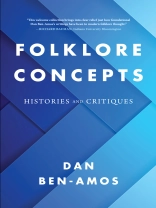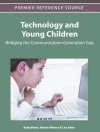By defining folklore as artistic communication in small groups, Dan Ben-Amos led the discipline of Folklore in new directions. In Folklore Concepts, Henry Glassie and Elliott Oring have curated a selection of Ben-Amos’s groundbreaking essays that explore folklore as a category in cultural communication and as a subject of scholarly research. Ben-Amos’s work is well-known for sparking lively debate that often centers on why his definition intrinsically acknowledges tradition rather than expresses its connection forthright. Without tradition among people, there would be no art or communication, and tradition cannot accomplish anything on its own—only people can. Ben-Amos’s focus on creative communication in communities is woven into the themes of the theoretical essays in this volume, through which he advocates for a better future for folklore scholarship. Folklore Concepts traces Ben-Amos’s consistent efforts over the span of his career to review and critique the definitions, concepts, and practices of Folklore in order to build the field’s intellectual history. In examining this history, Folklore Concepts answers foundational questions about what folklorists are doing, how they are doing it, and why.
Inhaltsverzeichnis
The Project / Henry Glassie
The Contours of the Book / Elliott Oring
Foreword / Dan Ben-Amos
1. The Idea of Folklore: An Essay
2. The Encounter with Native Americans and the Emergence of Folklore
3. Toward a Definition of Folklore in Context
4. Analytical Categories and Ethnic Genres
5. The Seven Strands of Tradition: Varieties in Its Meaning in American Folklore Studies
6. A History of Folklore Studies – Why Do We Need It?
7. The Concept of Motif in Folklore
8. ‚Context‘ in Context
9. Two Benin Storytellers
10. ‚Induced Natural Context‘ in Context
11. The Name is the Thing
12. A Definition of Folklore: A Personal Narrative
Bibliography
Index
Über den Autor
Dan Ben-Amos is Professor of Folklore and Comparative Literature in the Department of Near Eastern Languages and Civilizations at the University of Pennsylvania. He is author of numerous titles, including Sweet Words, Folklore in Context, Jewish Folk Literature; translator of In Praise of the Baal Shem Tov (with Jerome Mintz); and editor of Folklore: Performance and Communication (with Kenneth S. Goldstein), Folklore Genres, and volumes 1 through 3 of Folktales of the Jews. He is also editor of the Rafael Patai Series in Jewish Folklore and Anthropology at Wayne State University Press.












